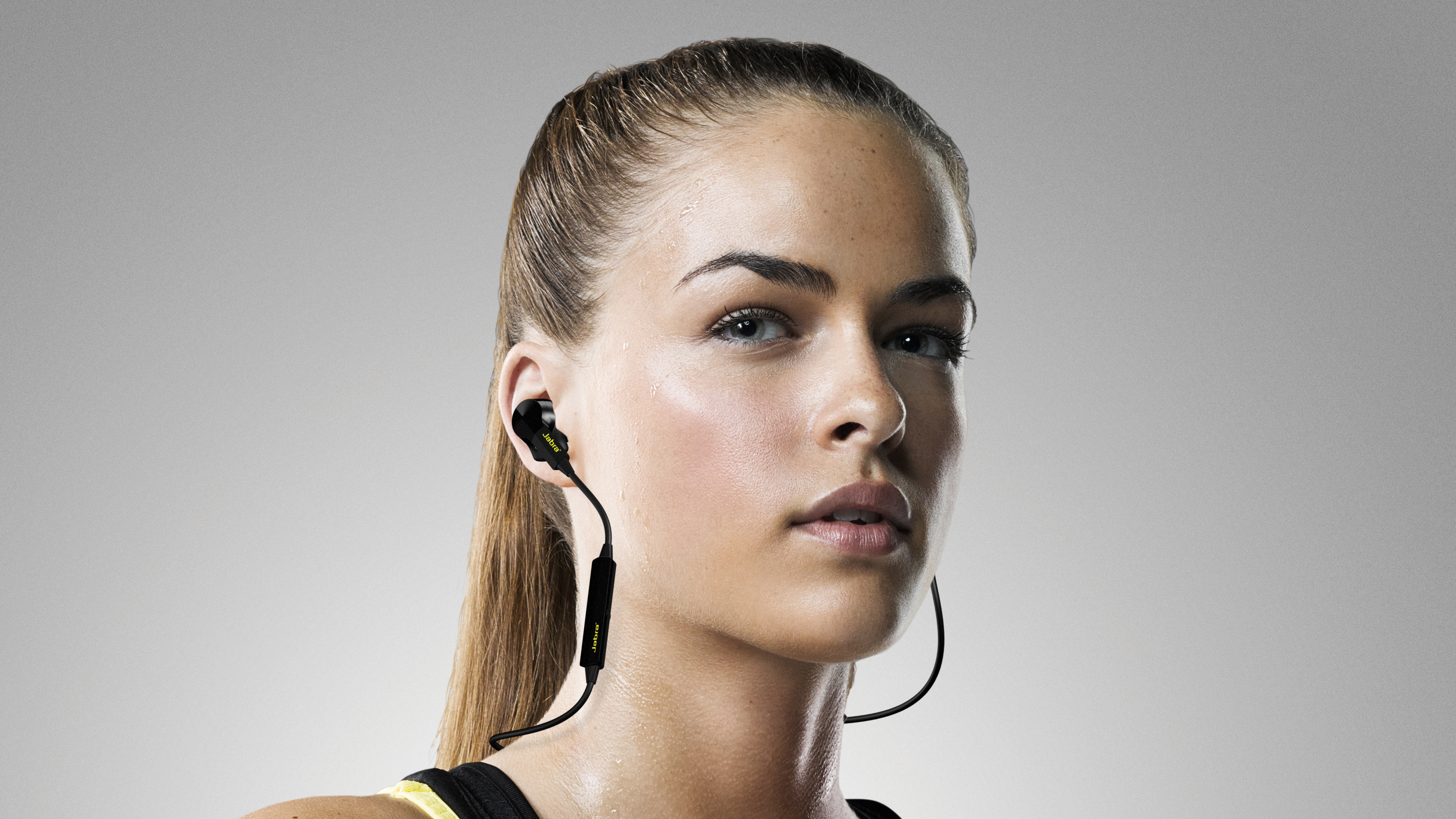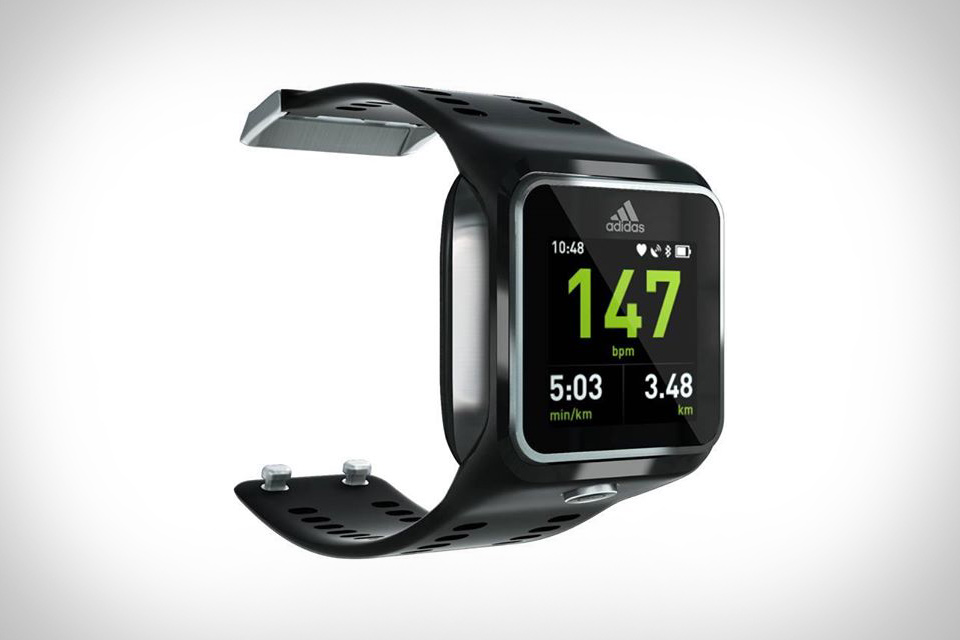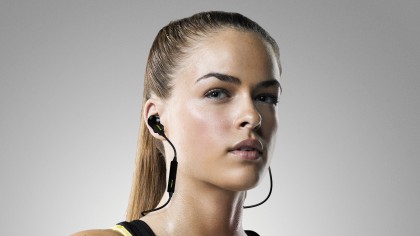10k a day: Adidas SmartRun and Jabra Pulse reviewed
Running Man Gareth Beavis tests the tech to make you faster

It's the new year, which means you'll be constantly battling past hordes of newly-inspired runners as you trudge your way to work once more.
But what if you wanted to join them but are scared you lack the speed? Or perhaps you're already pounding the streets in your well-worn trainers and are looking to spice things up with a touch of technology here and there?
Well, you're in luck. I'm currently running 10k every day – yes, every day – and over the coming weeks I'll be testing out some the best (and, to be frank, less best) running technology that the gadget world has to offer.
This will range from smart scales to clever running watches to bewitching Bluetooth headphones, all of them promising to make your attempts to get from one place to another a little bit faster, and more entertaining.
Here in the inaugural column I take a look at a rather fancy running watch and headphones that help you ditch the heart rate strap.
Adidas SmartRun

First up is the Adidas SmartRun - an oddity in the tech world in that it's actually been out for over a year, yet doesn't seem to be showing any signs of age. In fact, with numerous updates since then it's a much, much better version of the running watch that launched in 2013.
The great thing about the watch is its integration with Adidas' online miCoach platform, one of the best out there for every runner, ranging from the complete beginner to the seasoned trail warrior.
Get daily insight, inspiration and deals in your inbox
Sign up for breaking news, reviews, opinion, top tech deals, and more.
Simply key in what you want to do, whether it's run a race at a certain pace, get better for a sport or just de-stress, let it know what days you're available, and it'll come up with a tailor made plan to get you there.
This all syncs with the watch over Wi-Fi, which works both ways, so the second you step in the front door you'll be able to analyse all the information from your trot.
The other great thing is the inbuilt heart rate monitor, which means you can drop the strap and just use the optical sensor under the watchface to pulse light under the skin, making training that much better thanks to being able to work out effort based on how hard the ol' ticker is working, compared to just speed.
It's not a bad looker either, despite being a bit chunky - I wasn't ashamed to wear it out and about as a timepiece which adds to the convenience.
The latest update is one of the best for the SmartRun, as it brings 6 months' integration with MixRadio, a service that will deliver all manner of curated playlists to help you run that little bit more motivated. You can chuck your own MP3s on there too, but this involves USB leads and computers, where the MR option gives you a selection of tunes almost instantly.
It's not all good news with Adidas' running watch though. Firstly, there's the price: you'll struggle to get it anywhere for less than £260, with that cost not dropping much since launch…
Battery life
…And this is the other problem.
You'll get a long run out of the SmartRun, but that's about it (give or take a few hours of time-keeping). It was much worse at the beginning, so the updates have really helped, but this is more smartwatch-level of battery... which is irritating when its competitors can last over five times as long.
The GPS accuracy is also too generous, which is nice when you're knackered but not so great when you want to improve your speed and distance with precision. It's generally not massive – say 100 or so metres over a 5K run on average – but I did have instances in races where it would add nearly 10% to the distance travelled, which is awful if you're attempting to run to pace.
Despite that, it's still one of my favourite running watches for general training, especially when I want to load a few podcasts into my run and don't want to carry a phone with me.
Best for: The intermediate runner
Jabra Pulse

Let's move up the body now and into the ears: and these Bluetooth headphones are something a bit special.
I was so excited to try these out, as the Jabra Pulse set packs so many features in that they could feasibly remove the need for a running watch altogether.
You will need a phone though, as there's no inbuilt tracking apps in the headphones themselves, but what they do have is a very accurate heart rate monitor.
Actually, I need to caveat that last statement: the monitor should be very accurate, as they've been tested to be as accurate as medical test, sensing your pulse from inside the ear. However, I've got what doctors call "rubbish ears" for headphones, as they constantly fall out due to, apparently, lacking conventional human parts.
So the heart rate tracking was terribly inaccurate for me. However, I've spoken to a few other users that have worn them regularly, and they've raved about the fit and accuracy - so let's assume that they work just as advertised for the normal people.
The heart rate sensing is very quick to lock in - plus the set up you need to go through when connecting the Pulse headphones to either an iPhone or Android handset is very thorough.
You'll need to download the Jabra Sport app to get them set up (and with Android, the Jabra services app, which leaves an annoying icon running in the notifications bar) but once that's sorted you can use them with myriad other services, such as Strava.
On top of that, the Jabra Sport app can track your VO2 Max level (assessing the level of oxygen in the blood when exercising to track your fitness) or check if you're overtraining... an excellent test for something most athletes struggle to work out.
The design of the Jabra Pulse is also excellent - while they're plastic and rubber, the range of fits with the little ear 'wings' is excellent, the weight feels just right and they're IP55 rated, which means sweat or rain won't be a problem... plus they can survive being tossed around in gym bags easily.
The controls on the neckband are also large and easy to find, so should you want to pause music, change the volume / tracks or even take a call, it's all very easy to do on the go.
Another nifty feature that's often overlooked is the countdown start. Press go on your smartphone and you get a 10 second beep sequence, so you've got time to put away your phone and get the best running pose ready without having to try to do the same on the go and watching with horror as your new Galaxy handset smashes on the pavement.
The control section is a little large though, and this causes the neckband to bounce about wildly at pace. I took to using a safety pin to hold it in place, so it would have been nice if Jabra had added something a bit more professional in to do the same thing.
While they are Bluetooth, the Jabra Pulse headphones aren't very good without a smartphone - for instance, if you want to connect them to a running watch (the SmartRun above is a good example) then you're plum out of luck... it seems to need a certain set of under the hood services to connect.
And of course we've got the issue of price: these aren't cheap at £200. They do justify that cost, but I still find it hard to choose them over the convenience of a running watch as they can't track data without a smartphone attached, which kind of negates the point of having something so lightweight for running.
Then there's the issue with them falling out of my ears, with the associated loss in accuracy. I'm aware that most users won't have the same problem, but if you can find a way to try before you buy – easier said than done with in-ears, I know – I'd recommend you do.
In summary, these Jabra Pulse headphones are excellent for the runner who has a smartphone and wants to add in heart rate tracking. They sound great, the volume is good and the functionality excellent - if a touch on the expensive side to add to your running arsenal.
Best for: The serious trainer
Got a question? Let rip in the comments below or have a word on Twitter: @superbeav

Gareth has been part of the consumer technology world in a career spanning three decades. He started life as a staff writer on the fledgling TechRadar, and has grew with the site (primarily as phones, tablets and wearables editor) until becoming Global Editor in Chief in 2018. Gareth has written over 4,000 articles for TechRadar, has contributed expert insight to a number of other publications, chaired panels on zeitgeist technologies, presented at the Gadget Show Live as well as representing the brand on TV and radio for multiple channels including Sky, BBC, ITV and Al-Jazeera. Passionate about fitness, he can bore anyone rigid about stress management, sleep tracking, heart rate variance as well as bemoaning something about the latest iPhone, Galaxy or OLED TV.